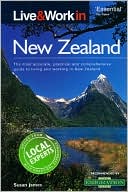By Manjusha Nambiar
New Zealand is fast emerging as an attractive study abroad destination for international students. New Zealand Universities, Institutes of Technology and other educational institutions are known for the unique learning environment they provide. Over the past few years there has been a consistent growth in the number of overseas students choosing New Zealand as their study abroad destination.
Why you should study in New Zealand?
New Zealand is a modern, secular, democratic society with no ingrained class system. It has a clean, green, warm, friendly and safe environment. Today, people from over 145 countries call New Zealand their home.
New Zealand provides education at relatively low cost. The cost of living is low and the quality of life is good. There are no language barriers and you will find plenty of easy part time job opportunities while studying. The approximate tuition fee per year is NZ$ 15000 (Rs 4,65,000) and living expenses NZ$ 12,000 (Rs 3,72,000).
Can I work in New Zealand after finishing my education?
Yes, you can. A New Zealand education not only provides you a world class degree, it also provides you a great opportunity to work and reside in this wonderful country after the completion of your course.
What are the subjects in the absolute or long term skilled shortage list?
Analytical chemistry, architecture, farm management, construction management, physiology, civil engineering, nursing, trade courses, IT, teaching, horticulture, viticulture, oenology, social work, health science, cookery and graphic design are some subjects coming under this category.
Dependent visas and work permits
The spouse of a student going for a skilled shortage course or a PG course is allowed to work full time. You are also allowed to work part time - 20 hours a week during the regular term and 40 hours during breaks.
Paid/unpaid internships with courses are available, making the learning environment practical. Bachelor degrees are generally of 3 years duration, however engineering programs are 4 years long.
New Zealand is fast emerging as an attractive study abroad destination for international students. New Zealand Universities, Institutes of Technology and other educational institutions are known for the unique learning environment they provide. Over the past few years there has been a consistent growth in the number of overseas students choosing New Zealand as their study abroad destination.
Why you should study in New Zealand?
New Zealand is a modern, secular, democratic society with no ingrained class system. It has a clean, green, warm, friendly and safe environment. Today, people from over 145 countries call New Zealand their home.
New Zealand provides education at relatively low cost. The cost of living is low and the quality of life is good. There are no language barriers and you will find plenty of easy part time job opportunities while studying. The approximate tuition fee per year is NZ$ 15000 (Rs 4,65,000) and living expenses NZ$ 12,000 (Rs 3,72,000).
Can I work in New Zealand after finishing my education?
Yes, you can. A New Zealand education not only provides you a world class degree, it also provides you a great opportunity to work and reside in this wonderful country after the completion of your course.
What are the subjects in the absolute or long term skilled shortage list?
Analytical chemistry, architecture, farm management, construction management, physiology, civil engineering, nursing, trade courses, IT, teaching, horticulture, viticulture, oenology, social work, health science, cookery and graphic design are some subjects coming under this category.
Dependent visas and work permits
The spouse of a student going for a skilled shortage course or a PG course is allowed to work full time. You are also allowed to work part time - 20 hours a week during the regular term and 40 hours during breaks.
Paid/unpaid internships with courses are available, making the learning environment practical. Bachelor degrees are generally of 3 years duration, however engineering programs are 4 years long.
The author is the editor of dailylearningtips.com, a website that provides study abroad information and test preparation tips and material. Article Source: http://EzineArticles.com/?expert=Manjusha_Nambiar



